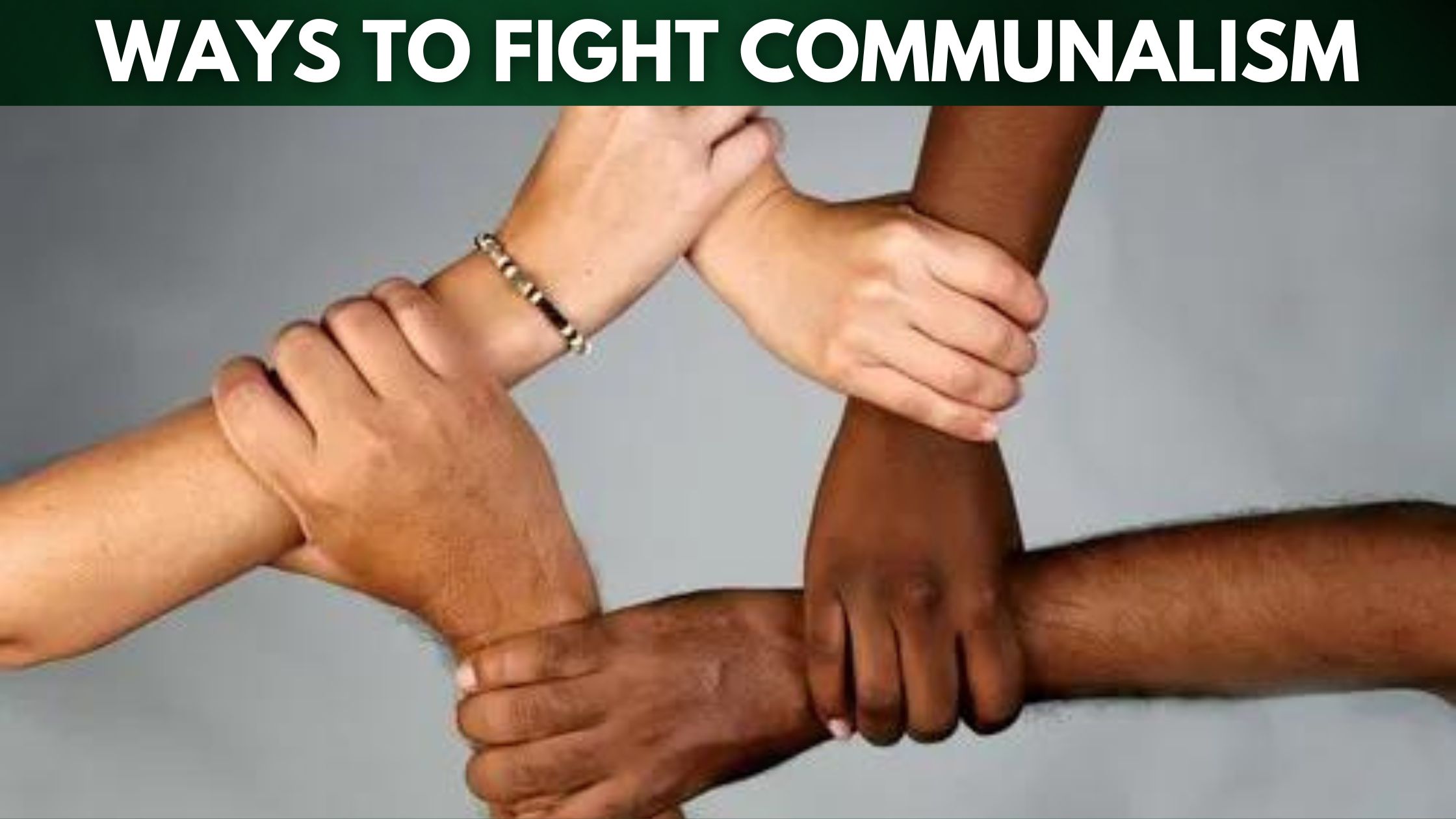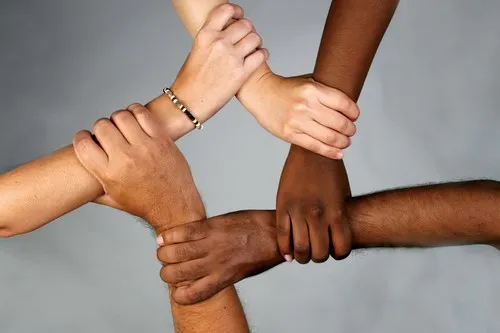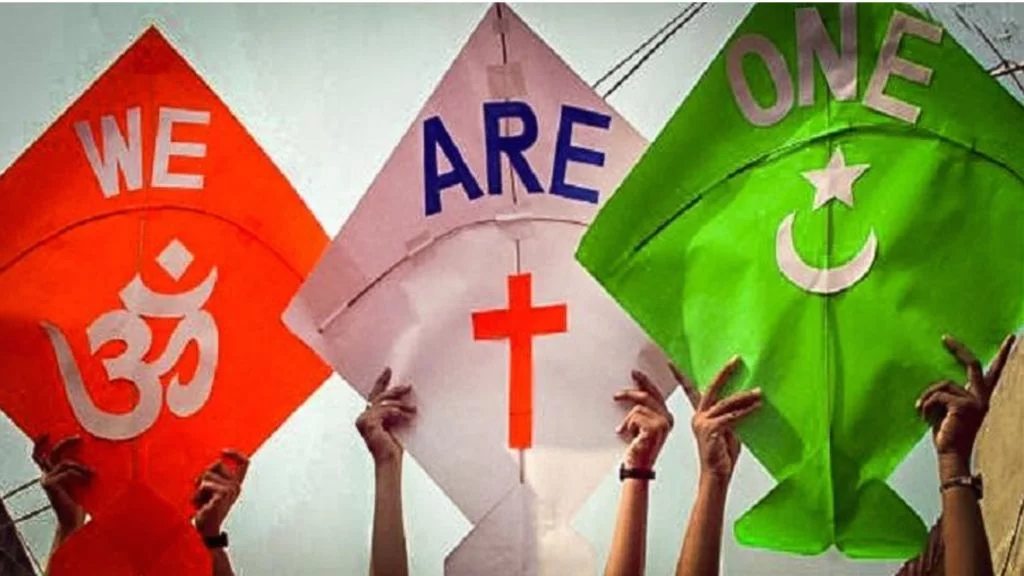Guides
Ways To Fight Communalism

What Is Communalism?
Communalism is described as an ideology stating the division between states (people, groups of people, or communities) on the basis of ethnicity, religion, beliefs, values, etc. The difference between two or more religious, ethnic, and social communities can sometimes produce clashes in society.
Communalism is a pressing issue that affects societies worldwide, leading to division and conflict among different religious, ethnic, or social groups.
However, there are effective ways to combat this problem and promote harmony and unity in our communities. Here are some simple and clear strategies to fight communalism:

Ways To Fight Communalism
1. Promote Education and Awareness
Education plays a vital role in eradicating communalism. By fostering awareness about different cultures, religions, and beliefs, we can promote tolerance and understanding. Schools and educational institutions should emphasize inclusivity and teach students about the importance of respecting diversity.
2. Encourage Interfaith Dialogue
Interfaith dialogue brings people from different religious backgrounds together to discuss common values and address misconceptions. By promoting open and respectful conversations, we can break down barriers and foster mutual understanding.
3. Support Grassroots Initiatives
Grassroots initiatives at the community level can be instrumental in combating communalism. These initiatives focus on promoting social cohesion, organizing cultural events, and fostering relationships between diverse groups. Supporting and participating in such initiatives can contribute to a sense of belonging and unity.
4. Strengthen Legal Frameworks
Governments and legal authorities must ensure that existing laws effectively address communal tensions. Strengthening legal frameworks against hate speech, discrimination, and incitement to violence can deter communalism and provide a sense of security to all communities.
Law Enforcement
In communally sensitive areas, secular-minded law enforcement officials must be appointed. Similarly, Special Courts that deal with cases related to communal riots must be set up in communally sensitive states for the speedy disposal of cases. Also, immediate legal action should be taken against those who instigate communal violence.

5. Encourage Political and Social Leaders to Promote Unity
Political and social leaders have a significant influence on public opinion. It is essential for them to use their platforms to advocate for unity, inclusivity, and respect for all communities. Their actions and words can shape public perceptions and contribute to a harmonious society.
Establishment of Peace Committees
The government should immediately constitute a peace committee in the riot-hit areas comprising the respected people belonging to different communities. These leaders can help in persuading the leaders of the fighting communities and help in restoring peace.
6. Engage in Social Media Responsibility
Social media has become a powerful tool for communication, but it can also be a breeding ground for communal tensions. Individuals must use social media responsibly, avoiding hate speech, misinformation, and spreading divisive narratives. Promoting positive and inclusive content can help build bridges and counter communalism.
Supervision by Media
The media must be made to act with responsibility while publishing reports about communal riots. Those media houses which spread rumors and instigate violence must be strictly prosecuted. Similarly, the government should also keep a vigil over the social media platforms like WhatsApp which tends to spread rumors and agitate people.
7. Foster Economic Opportunities for All
Socioeconomic disparities often fuel communal tensions. Governments and organizations should work towards creating equal economic opportunities for all communities. Providing employment, and access to resources, and promoting economic development in marginalized areas can help reduce grievances and foster social cohesion.
8. Encourage Community Integration
Encouraging community integration activities can bridge divides and promote understanding. Organizing events, cultural exchanges, and community service projects that involve people from different backgrounds can help build empathy, friendships, and stronger communities.
9. Encourage Political Accountability
Political leaders and policymakers have a crucial role to play in combating communalism. Encouraging transparency, and accountability, and promoting policies that uphold equality and protect the rights of all citizens can help counter communal tendencies. Holding politicians accountable for their divisive rhetoric and supporting candidates who prioritize communal harmony is essential for creating a more inclusive society.
10. Lead by example
Act as role models by embracing communal harmony in our own lives and encouraging others to do the same.

Conclusion: By implementing these strategies, we can create a more inclusive and harmonious society, where communalism is actively fought against, and diversity is celebrated. It requires collective effort and commitment from individuals, communities, and institutions to make a lasting impact and build a future based on unity and understanding.
